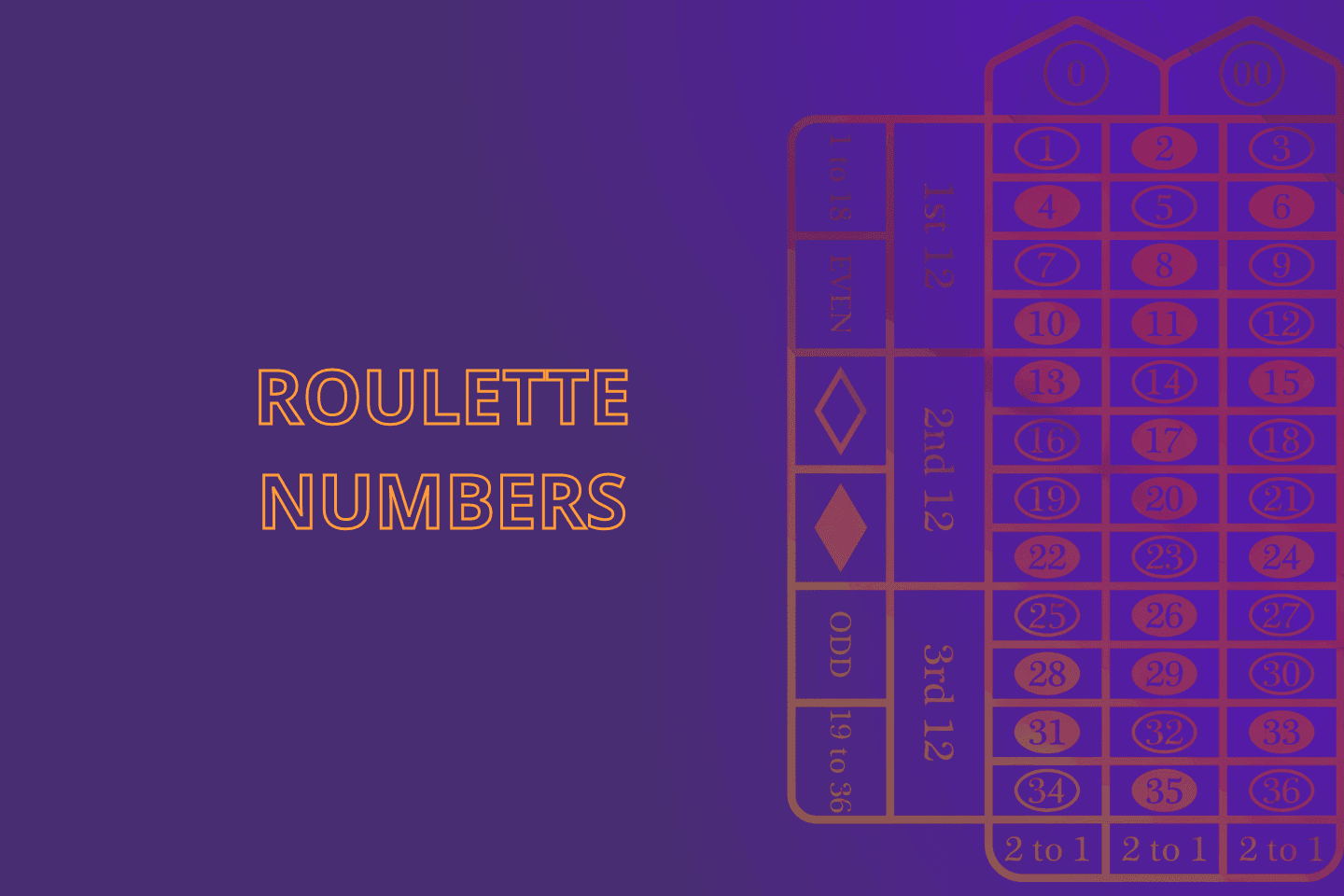Roulette is a captivating game that has enticed gamblers worldwide with its blend of luck and strategy. With the croupier spinning the wheel, players eagerly watch as the ball lands in one of the numbered pockets. Understanding which numbers are most common can help refine betting strategies. This article delves into the details of the most frequent numbers in various types of online roulette game such as American, European, and French.
The table layout and bet types
Before diving into which numbers are most common, it's essential to understand the basic structure of the roulette table and the types of bets involved. The table features pockets numbered from 0 to 36, and sometimes 00 in American roulette. Players place their bets on individual numbers or groups of numbers, aiming to predict where the ball will land.
- Straight-up Bet: Betting on a single number.
- Split Bet: Placing a bet on two adjacent numbers.
- Street Bet: Wagering on three consecutive numbers in a row.
- Corner Bet: Betting on four numbers that form a square on the table.
- Line Bet: Betting on six consecutive numbers that form two rows.
The role of the croupier and the wheel
The croupier plays a critical role by managing the spin of the wheel and guiding the ball. The roulette wheel itself varies slightly between American, European, and French variations, impacting which numbers tend to appear more frequently. The differences in wheel design also affect the house edge, which can significantly influence player outcomes.
Diving into variations: European and American roulette
European roulette
European roulette is popular among players due to its lower house edge, resulting from a single zero pocket. This version consists of 37 numbered pockets (0-36). Commonly hit numbers tend to have a slight bias owing to wheel imperfections over time, although the difference is usually minimal.
Players often report that certain numbers like 17, 23, and 24 are more frequent, believed to be because these parts of the wheel may receive more spins during play. However, this may vary based on specific wheels used at different casinos.
American roulette
American roulette adds a double-zero pocket (00) to the wheel, totaling 38 pockets. This inclusion increases the house edge, making it less favorable compared to European roulette. Despite the higher edge, American roulette remains widely played in North America.
Pockets 0, 28, and 29 have often been noted by players as numbers that come up more frequently. Some attribute this to the wheel's balance or minor design flaws. Certain numbers may seem to hit more often, particularly if the wheel isn’t perfectly calibrated.
Common numbers and myths: Separating fact from fiction
The luck of 17
One surprisingly consistent element across almost all variants of roulette is the popularity of the number 17. It's strategically centered on the board, making it an attractively balanced choice for many players. Records have shown frequented hits for this particular number, boosting its reputation as one of the favored picks.
Myths surrounding lucky numbers
A variety of myths circulate regarding so-called "lucky" numbers. While some players believe in recurring lucky streaks for specific digits, there's little scientific evidence supporting this. Nevertheless, numbers like 7, 13, and 0 still hold anecdotal allure, urging bettors to make them focal points in their gaming strategy.
The belief that certain digits frequently appear echoes through casino culture, perpetuated by tales of substantial wins tied to those numbers. A sense of nostalgia combined with sporadic observations molds these legends among regular visitors.
The concept of hot and cold numbers
Hot numbers refer to those that show up frequently within short periods, while cold numbers are those that aren't landing as often. Casinos often display recent results on digital boards, reflecting trends in hot and cold numbers. Numbers classified as hot — say 8, 14, or 35 — might be placed into ongoing gameplay assumptions regarding current cycles of luck or randomness.
Strategy and common numbers: Leveraging patterns in your favor
The Martingale system
This progressive betting strategy involves doubling the bet after each loss until a win occurs. Although not foolproof and laden with risk, using perceived common numbers in combination with this tactic accentuates potential benefits. Imagine focusing on frequently occurring numbers like 3 or 13; pairing them with the Martingale technique intensifies bet concentration on presumed high-likelihood targets.
Fibonacci sequence betting
Another numerical strategy incorporates the Fibonacci sequence in wagering. Following this sequence ensures incremental bet adjustments: starting small and scaling toward higher stakes progressively. Deploying this method on numbers reported to have prevalent recurrence draws those figures deeper into informed predictions. Examples include applying the sequence onto frequently emerging numbers, say 5 or 18, channeling efforts more effectively.
Random number selection and intuition-based betting
For players leaning towards intuition, selecting numbers mentally linked to positive experiences or good omens charms their gaming approach. Choices often hone in on cherished dates or milestones represented by numbers like 7, 22, or birthdates aligned numerically. Mixing personal inclination with statistically repeated hits sharpens abstract instincts against contextual realities.
Tracking numbers and utilizing technology
Using number tracking charts
A variety of tools exist for real-time data collections, capturing the outcome frequencies of each spin. By maintaining meticulous records, tracking commonly hit numbers becomes feasible, extending beyond casual observation. Dedicated apps or spreadsheets aid in dissecting timing intervals and prevailing combinations indicative of event clusters, notably emphasizing numbers like 19 or 21.
Technology integration: Roulettes simulators
Roulettes simulators employ algorithms replicating realistic spin conditions to simulate countless rounds rapidly. Utilizing these programs enables spotting repetitive number trends ostensibly bypassing human error in perception accuracy. Technology consequently lays bare distinct patterns or biases undetectable otherwise, underpinning online databases chronicling hits around numbers like 10 or 34 regularly spotlighted. Simulation findings enhance understanding of statistical probabilities governing favorite selections.
The role of randomness and probability
Understanding randomness
While randomness drives fairness within games, roulette integrates complex mechanics orchestrated by random sequences. Though presumed unbiased, inherent manufacturing defects or regular usages introduce marginal biases skewing true randomness over prolonged durations observing repeated hit phenomena off numbers recurrently like 30 or 31.
Probability and common occurrences
Statistically analyzing large dimensions of gameplay reaffirms expectations converging around constants marking familiar numbers repeatedly. Stability bends towards profiles constituting equilibrium points wherein equations determine likely return-to-norm instances circling unmistakable upcoming iterations tethered cyclically hovering windows spinning near previously noted constants.
The exploration doesn't culminate therein contained nuances extrapolated exhaustively investigating repeating incidences highlights dynamic attributes animating segments encapsulating myriad turning insights.

Sherif Saeed - Copywriter
Last modified on : August 30, 2024
سعيد هو كاتب مقالات مدونتنا. وبفضل خبرته في الكتابة ومعرفته العميقة بعالم الكازينو، فإننا نثق به لتقديم أفضل الأدلة والمعلومات المفيدة عن ألعاب الكازينو وآخر أخبار الصناعة والحيل والاستراتيجيات.


